 |
…the addition of bonuses and raises does not necessarily motivate a change in behavior, nor does it necessarily convince people that the downside of failure will go unpunished by the system.
|
111 |
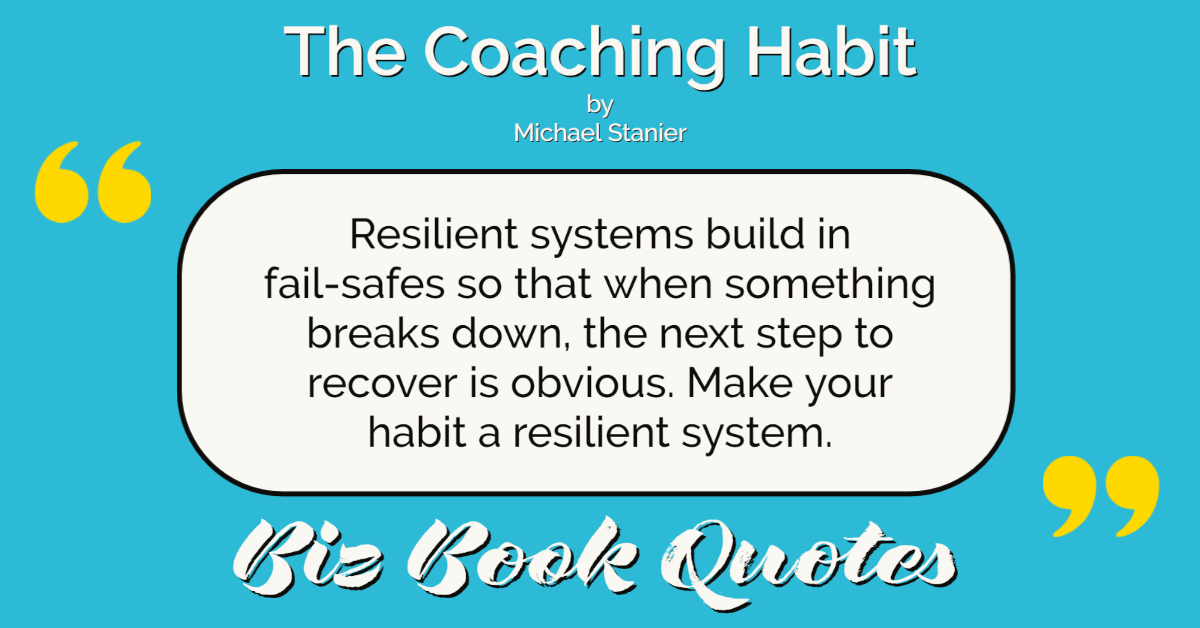 |
Resilient systems build in fail-safes so that when something breaks down, the next step to recover is obvious. Make your habit a resilient system.
|
22 |
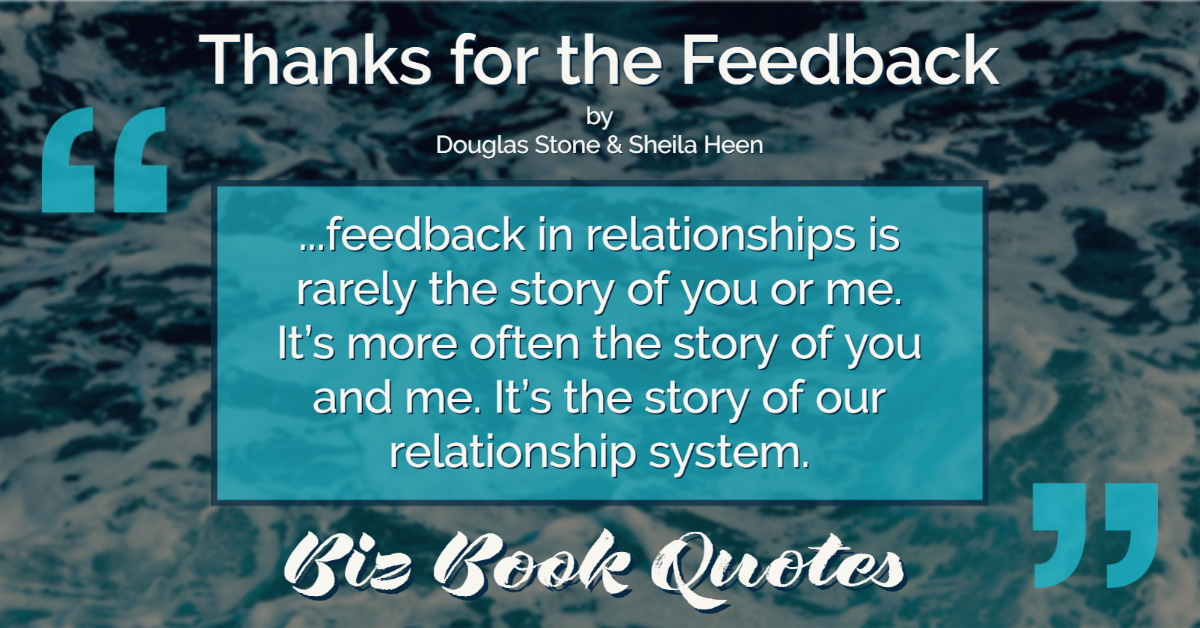 |
…feedback in relationships is rarely the story of you or me. It’s more often the story of you and me. It’s the story of our relationship system.
|
23 |
 |
We are less likely to make that leap from description to damnation if we see the conflict as a simple intersection, perhaps compounded by clashing roles, inside a larger system.
|
136 |
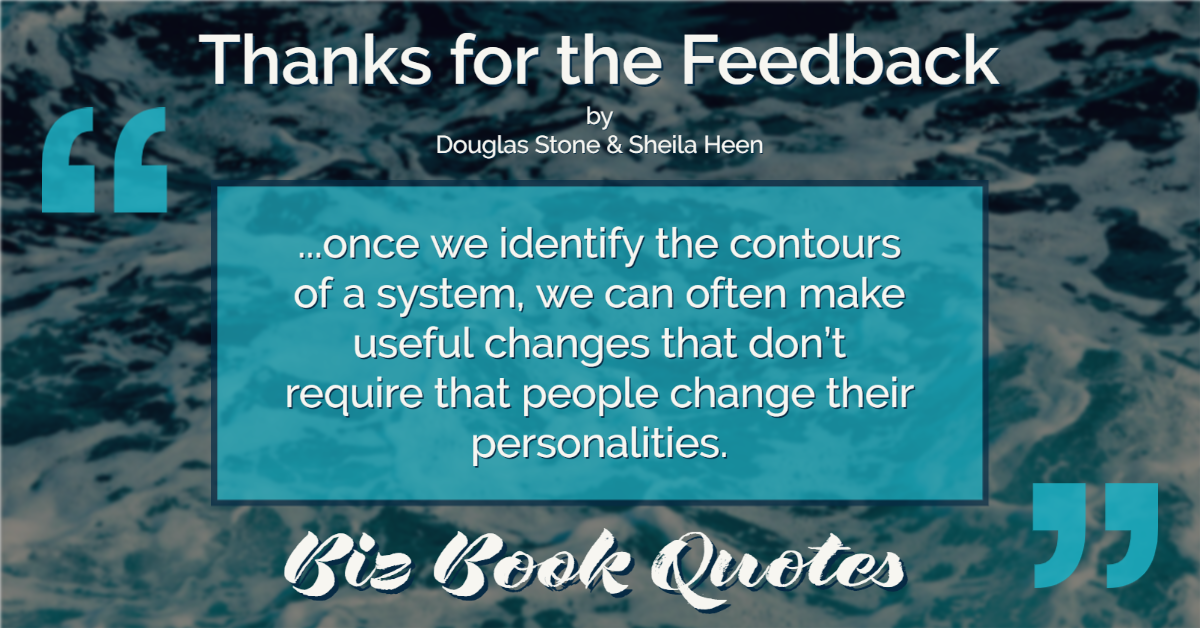 |
…once we identify the contours of a system, we can often make useful changes that don’t require that people change their personalities.
|
143 |
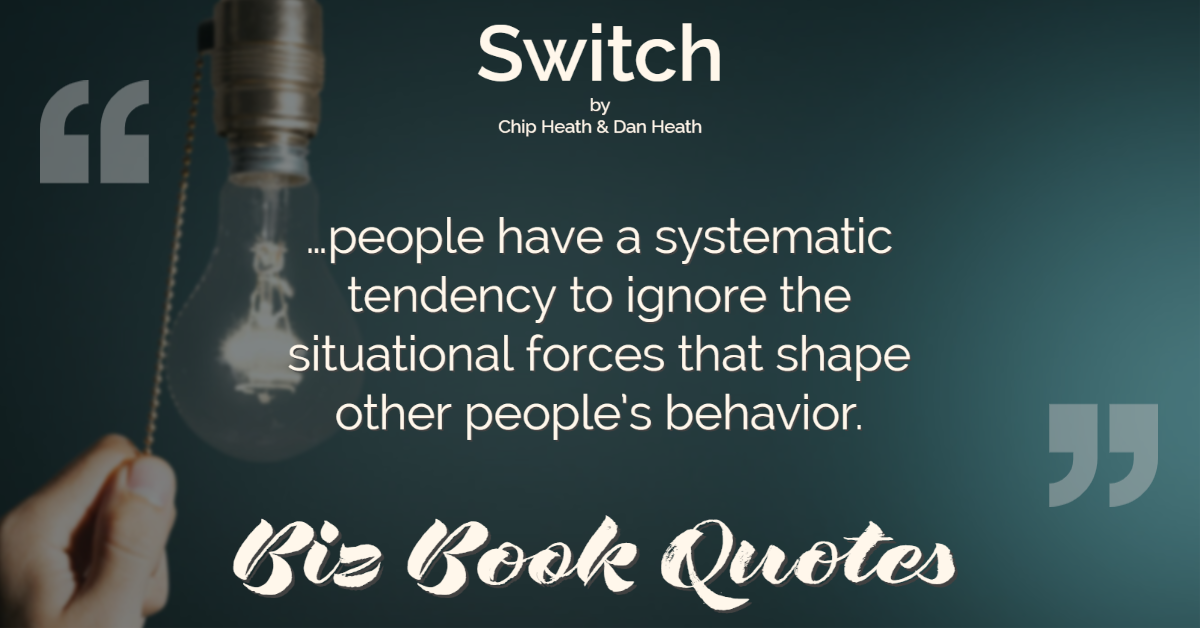 |
…people have a systematic tendency to ignore the situational forces that shape other people’s behavior.
|
180 |
 |
Anything you consider unfinished in any way must be captured in a trusted system outside your mind… that you know you’ll come back to regularly and sort through.
|
14 |
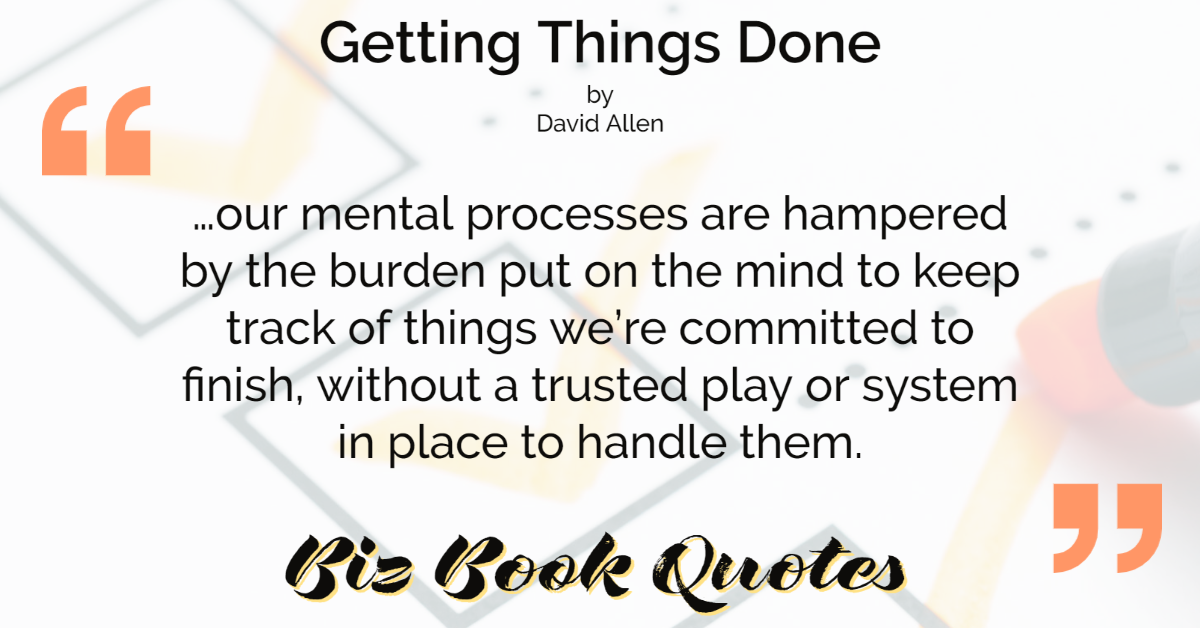 |
…our mental processes are hampered by the burden put on the mind to keep track of things we’re committed to finish, without a trusted play or system in place to handle them.
|
25 |
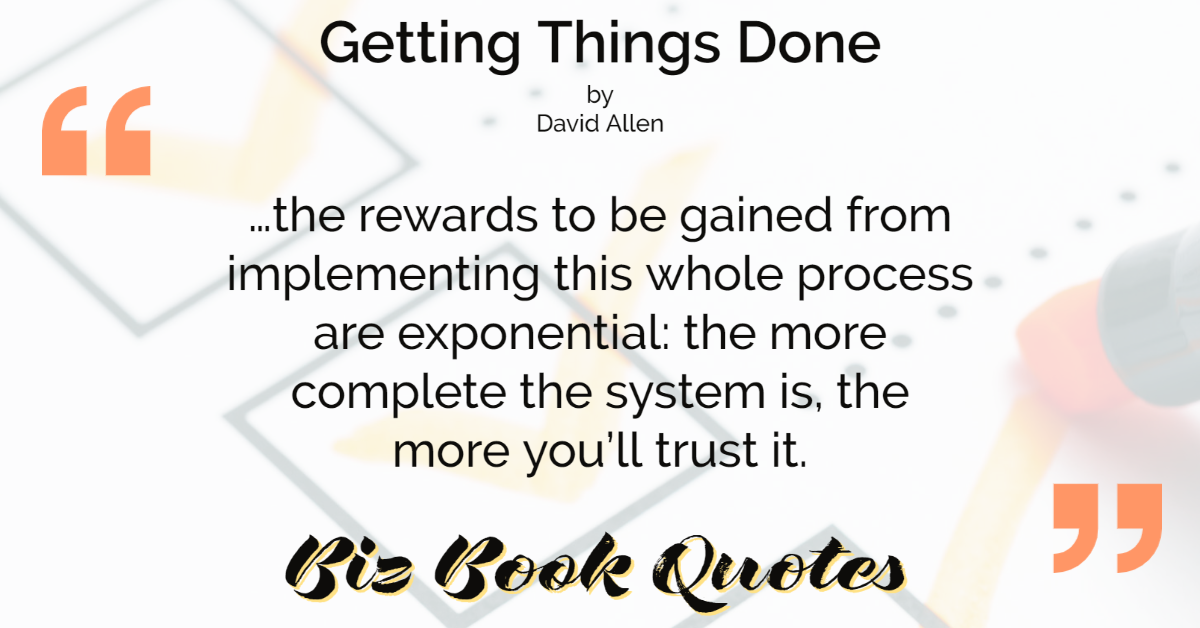 |
…the rewards to be gained from implementing this whole process are exponential: the more complete the system is, the more you’ll trust it.
|
51 |
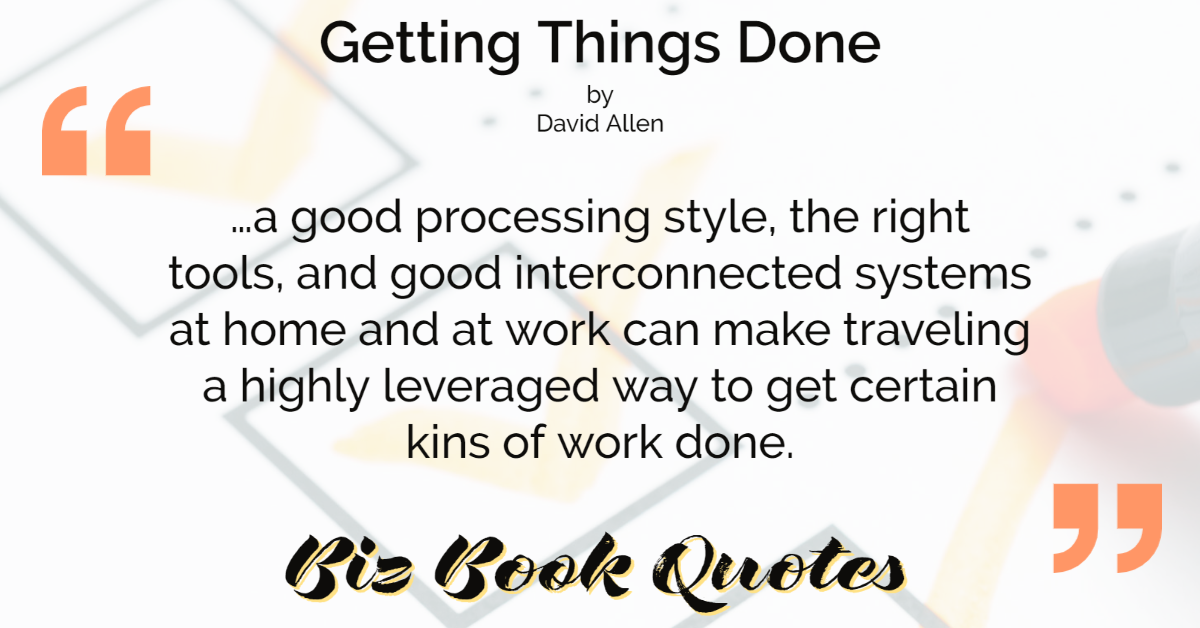 |
…a good processing style, the right tools, and good interconnected systems at home and at work can make traveling a highly leveraged way to get certain kins of work done.
|
90 |